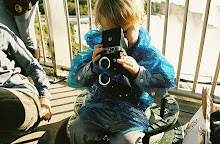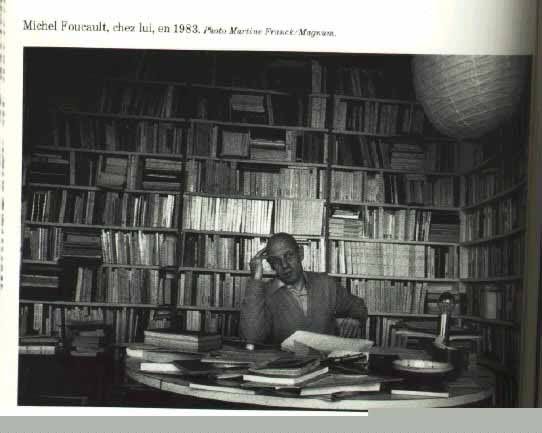You said something

i thought i would write something about Thanksgiving. i wanted to compose a sort of mini-mythology or even a Lover's Discourse-like entry as a way of wrapping my head around this year's experience, so i went to the bookshelf. i happened to be at Paul's, and he doesn't have the Barthes i was looking for, but he does have The Eiffel Tower and Other Mythologies, which i'd never read.
From the jacket introduction:
"...this writer teaches us to look at the world no longer with the eyes of a confessor, a physician, or of God -- those significant hypostases, as he has said, of the classical novelist -- but with the eyes of a man walking in his city with no other horizon but the spectacle before him, no other powers but those of his own eyes. And the voice in which the teaching is, significantly, performed, is unique in that it is intimate but not private, responsible but not officious, convincing but not accusatory. Barthes is the Ariadne in the labyrinth of our cities, and the clue he affords is the paradoxical one we could expect from no one else: to get out, go in deeper.
And from Barthes:
Like Monsieur Jordain confronted with prose, every visitor to the Tower makes structuralism without knowing it (which does not keep prose and structure from existing all the same); in Paris spread out beneath him, he spontaneously distinguishes separate -- because known -- points -- and yet does not stop linking them, perceiving them within a great functional space; in short, he separates and groups; Paris offers itself to him as an object virtually prepared, exposed to the intelligence, but which he himself must construct by a final activity of the mind, conveyed by the tourist's modest glance, has a name: decipherment.
i lost Thanksgiving and came back to New York. If, in New York, there is no single structural equivalent to the Eiffel Tower, no iconic dialectical perch, then what are we looking at? From rooftops in Bushwick, and the park on North 8th, and (in 'the city') the top of the building where you work, riding our bikes over the bridges, and the epic overwhelm of DUMBO park, there is the panorama. And we go, in our heads: there's the Chrysler Building, there's Con Edison. i can sort of see where Sunnie's house fits, and Tschumi's blue blob that everyone bitches about distracts me when i'm riding under the Williamsburg Bridge to work. Every once in a while someone speculates about the what the colors of the Empire State Building are meant to signify this week. Stopping and actually looking is sublime: it is a constant reminder of what's different here, because it is different here. The little planes and little boats and the water -- all of it -- to know, as you're watching, the tiny spot inside of it all where you were 2 or 3 hours ago, and where you'll be again tomorrow. No birds-eye view, but a kind of map. If, once upon a time, deciphering the view from the Eiffel Towel was a way of performing structuralism, what is the contemporary equivalent?




